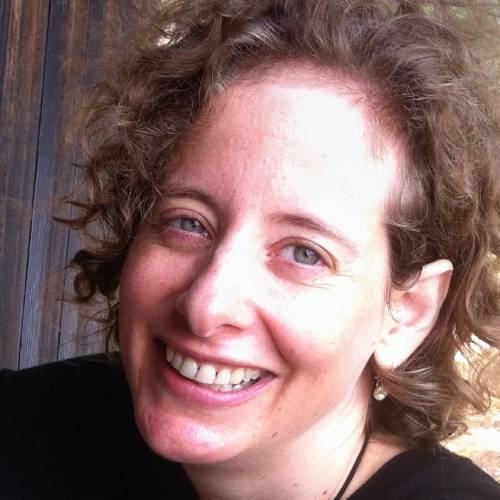A new kind of business incubator says that small is beautiful. It’s redefining startup success.
If you want to become an entrepreneur, the path often goes through a business accelerator or incubator. These organizations help entrepreneurs take ideas and make them real.
Most business incubators and accelerators use a standard approach, pioneered by Silicon Valley’s Y Combinator and Boulder-based TechStars. Mentors guide entrepreneurs to develop a product or service solution that can expand nationally or even globally, returning tenfold or hundredfold returns to initial investors.
In Detroit, would-be entrepreneurs can choose a business incubator with a different model. Mentors at Green Garage, a five-year old incubator, encourage entrepreneurs to dive deep into the local environment — and themselves — to develop their businesses.
Choose Wisely
The kind of incubator you choose matters.
The incubator process is so intense that participants come out “an almost completely different person,” says Dr. Suntae Kim, professor at Boston College. Kim studied participants at ACCEL (a pseudonym), a Detroit incubator that follows the standard model; and at the more alternative Green Garage.
Kim followed first-time entrepreneurs as they went through the two incubators, interviewing them and watching their development. The entrepreneurs were similar starting out, he said: all interested in making a profit, along with some positive social impact.
But the different incubators produced very different results. Those going through ACCEL came out “wanting to be the next Mark Zuckerberg or Google”: focused on high growth. Those from Green Garage, by contrast, internalized sustainability and a local orientation.
A Tale of Two Incubators
What happens on the journeys through ACCEL and Green Garage?
ACCEL: Scale and Move On
In a standard incubator, like ACCEL, mentors tell entrepreneurs to focus on finding a product or service that will grow rapidly and reward investors. “Say an entrepreneur is coming in with a desire to help local people in Detroit,” explains Kim. “Mentors say: ‘Don’t just focus on Detroit, because you need to extend this to all 50 states within three to five years. Focus on scaling.’” Entrepreneurs spend weeks discussing whether a particular solution can be quickly scalable, expanding across the country.
The focus on scalability narrows the range of possible businesses. An ACCEL mentor comments: “Human-intensive, consulting-like ideas cannot be scalable. It’s not what VCs [venture capitalists] or angels are looking for…they are looking for something that can grow really quickly.”
Finding investment is the priority in incubators like ACCEL, and often leads to “entrepreneurial flight.” A company might begin in Detroit, but move to Silicon Valley to be closer to potential investors with deeper pockets. Entrepreneurs in ACCEL also learn that “serial entrepreneurship is cool,” says Kim. They want to create new businesses over and over — rather than building a company “that lasts for 100 years, hires local people, and becomes an institution.”
Green Garage: Connect to Self and Place
Green Garage’s model starts with exploring the entrepreneur’s history and passion around an issue. Entrepreneurs spend weeks identifying that concern; Kim compares the discussions to therapy. “There are tears, there are emotions.”
Finding a personal connection leads to long-lasting commitment to the resulting business. An entrepreneur at Green Garage recalls: “Out of all kinds of sustainability, I found a personally sustainable idea, something I can work on for years and years.” Green Garage founder Tom Brennan explains that the businesses he incubates are “built around a deeply held belief that has been with the person for a long time, and is of benefit for others.”
Recently, Brennan has been mentoring entrepreneur Phyllis Johnson, who is developing a line of herbal teas. Her family has used medicinal herbs for a century; as African Americans living in the South, they had little access to conventional health care.
“She has these deeply held beliefs about the health benefits of herbs,” says Brennan, and her commitment is unstoppable. “She can’t stop making tea. She is going to make tea no matter what conditions are, whether she makes money. This is a really deep belief in her heritage and who she is as a person. We’re not doing a focus group; it’s about Phyllis and her heritage and her identity. And, it’s fabulous tea.”
In looking for solutions, Green Garage analyzes the local system and how the business can fit in. For example, FoodLab Detroit, a recent Green Garage business, helps Detroit food entrepreneurs expand out of their home kitchens. It found underused resources in the local area: largely empty kitchens in local churches became shared kitchen spaces open to all local entrepreneurs.
Green Garage tries to create long-lasting, local businesses. “They may not be the next Facebook or Google, but they may be able to produce 50 or 100 stable jobs, and that’s what the area needs,” says Kim.
There’s deep value when entrepreneurs connect to their passions and their place, says Brennan. Often businesses are viewed as machines, with interchangeable human gears. “People experience stress, because the environment in the organization is only feeding a small part of themselves,” he says. “What if an organization says ‘All of who you are is needed?’” That recognition leads to personal well-being and business profit.
Incubator Scorecard
The economy needs the kinds of businesses created by both ACCEL and Green Garage, says Kim. “More traditional business incubators who aim to create biggest return for investment have created lots of useful innovations like AirBnB.”
But the traditional incubator model isn’t doing enough, especially for former manufacturing towns down on their luck. Technology firms, the focus of traditional incubators, don’t produce enough jobs. A single GM plant supported more than 100,000 workers; Google, by contrast, employs less than 10,000 in total. Smaller, locally-focused businesses can help fill that gap.
Would-be social entrepreneurs looking for an incubator might benefit from the ACCEL or Green Garage experiences. Kim advises: “’Social’ entrepreneurs should first think about what ‘social’ means to them. If you want to find a solution to a worldwide, ubiquitous problem, you should go to places like ACCEL to find a cure for the next pandemic. But if ‘social’ means something different to you, such as helping your economically-challenged local community, or solving local problems through something unique inside you, consider venturing out to a place like Green Garage.”
Brennan adds: “If there’s a wholeness and healthiness about your efforts, they will naturally grow. You just have to stay steady with it. You know when you’re on the right path: you can feel it in your feet.”
Share Your Story with Suntae Kim
Green Garage is a powerful model, but it views itself as an inspiration rather than a template. Do you know of other incubators that take a similar local and personally-grounded approach?
If so, please share your story with Suntae, in the comments below or by email. He’s trying to map the network.
“There are business incubators specific for social entrepreneurs,” he explains, “but most follow the standard model, still focusing on funding cycles and investment pitches.” Green Garage provides an intriguing new direction.



Add a Comment
This site uses User Verification plugin to reduce spam. See how your comment data is processed.This site uses User Verification plugin to reduce spam. See how your comment data is processed.